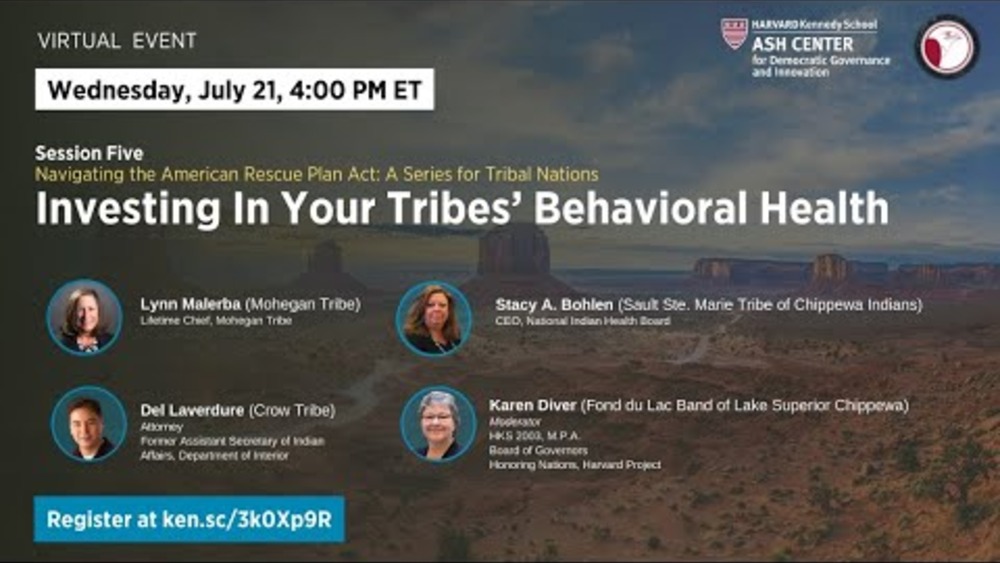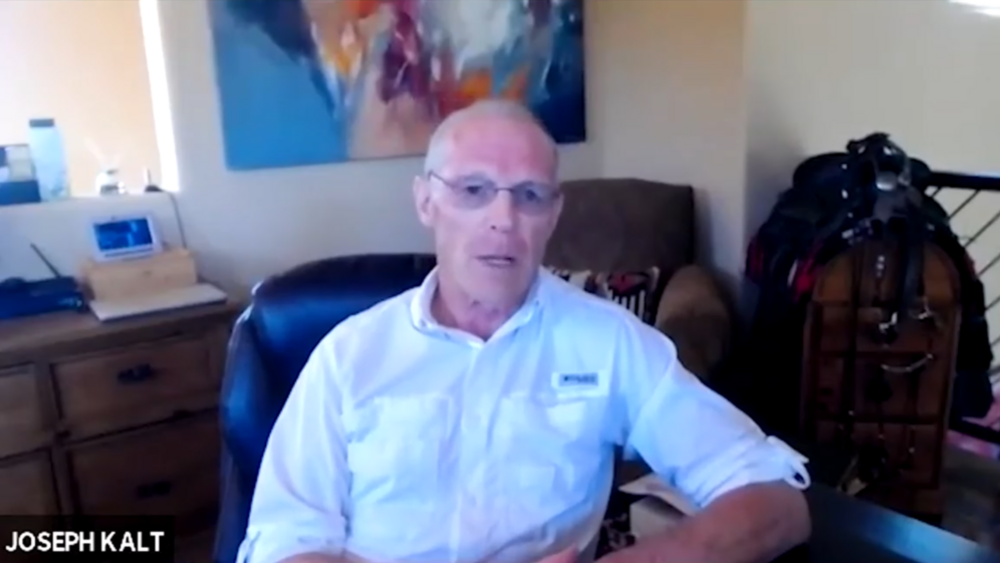The American Rescue Plan Act (ARPA) provides the largest single infusion of federal funding into Indian Country in the history of the United States. More than $32 billion is directed toward assisting American Indian nations and communities as they work to end and recover from the devastating COVID-19 pandemic – which was made worse in Indian Country precisely because such funding has been so long overdue. From setting tribal priorities, to building infrastructure, to managing and sustaining projects, ARPA presents an unprecedented opportunity for the 574 federally recognized tribal nations to use their rights of sovereignty and self-government to strengthen their communities. As the tribes take on the challenges presented by the Act, the Ash Center’s Harvard Project on American Indian Economic Development presents a series designed to assist tribes, to help tribes learn from each other and from a wide array of guest experts.
This first session, titled “How Tribal Governments Can and Can’t Use ARPA” will feature:
- Joseph P. Kalt, Ford Foundation Professor (Emeritus) of International Political Economy & Co-Director, Harvard Project on American Indian Economic Development
- Del Laverdure, Attorney and Former Assistant Secretary of Indian Affairs at the Department of the Interior
- Burton Warrington, President, Indian Ave Group
- Jennifer Weddle HLS 2000, J.D., Principal Shareholder, Co-Chair American Indian Law Practice Group, Greenberg Traurig, LLP
- Andy Werk, Jr., President, Fort Belknap Indian Community
- Moderated by Karen Diver HKS 2003, M.P.A., Board of Governors, Honoring Nations, Harvard Project
Presentation slides: Setting the Table | Fiscal Recovery Fund Overview | ARPA Eligible Uses
Additional Information
"How Tribal Governments Can and Can’t Use ARPA." Harvard Ash Center. May 26, 2021. Livestream. (https://www.youtube.com/watch?v=lxtjfzLZHwY, accessed May 30, 2024).



